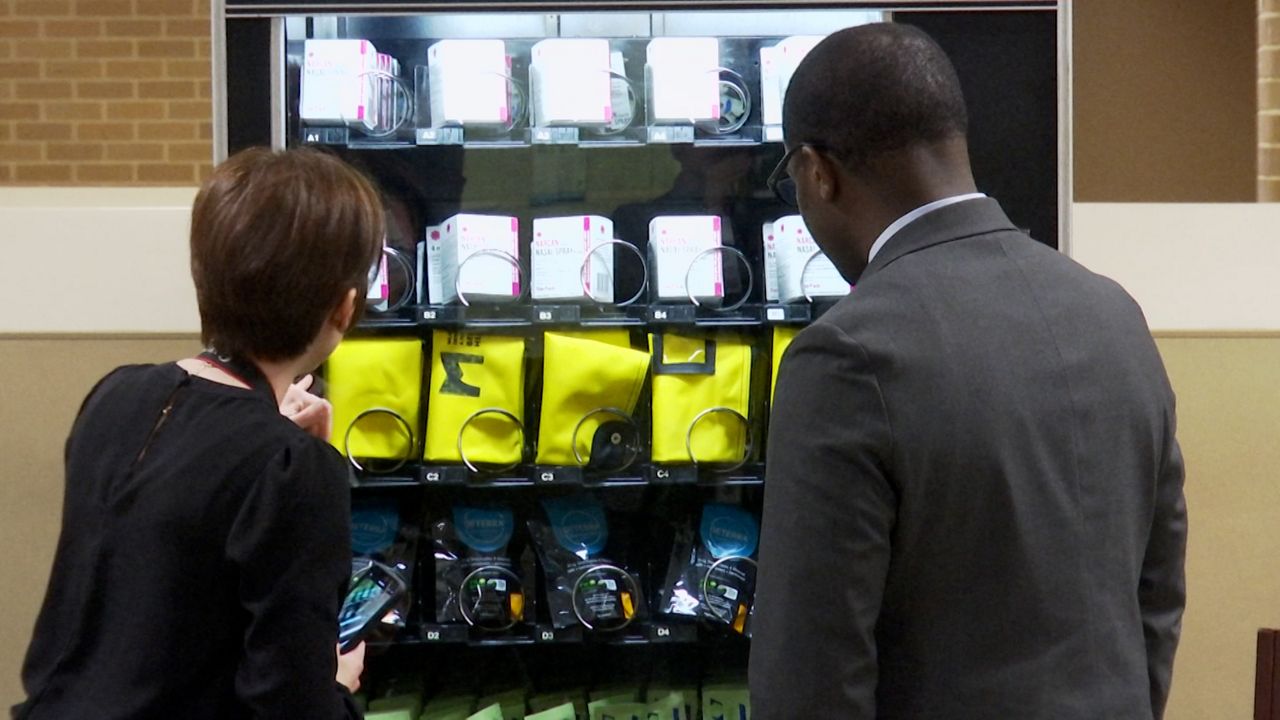MILWAUKEE — Someone dies of an opioid overdose in Milwaukee County every 16 hours.
The record-breaking statistic has county and community leaders working together on the best ways to save lives by using $11 million to put toward 15 projects aimed at combating the crisis.
In 2021, Wisconsin reached a $400 million settlement with opioid manufacturers and distributors for their role in the epidemic. 30% of that money goes to the state’s Department of Health and Human Services, while the remaining 70% is for counties and municipalities that participated in the lawsuit.
Milwaukee County announced Monday morning how a portion of that money will be used for harm reduction, including vending machines with preventative resources.
County Executive David Crowley put pen to paper Monday as he signed a bill that released millions of dollars to support strategies and tactics to combat the opioid epidemic.

“By following the data and investing in the communities with the highest need, we are optimistic that these settlement fund dollars will make a sizeable impact in addressing behavioral health all across Milwaukee County,” Crowley said.
Among the initiatives is harm reduction vending machines stocked with free fentanyl test strips, nasal Narcan, medication deactivation pouches, lock bags for prescriptions and gun locks.
The first installed machine was unveiled Monday at the Marcia P. Coggs Human Services Center on Vliet Street, which is named in honor of County Board Supervisor Priscilla Coggs-Jones’ grandmother.
“Given her legacy and fighting for social justice and inequality, I would like to think she would be extremely proud of the work done here today,” Coggs-Jones explained. “The harm reduction vending machines do not condone use. Rather, they recognize the reality that many people will continue to use drugs regardless of the legality and the risk involved.”

However, fentanyl, the drug of choice, accounts for 95% of opioid overdoses and doesn’t discriminate based on race, age or gender.
“The 15 funded projects from the Department of Health and Human Services, the Office of Emergency Management, the medical examiner and the sheriff, target the most vulnerable members of our community, providing them the opportunity to first survive, and second, to recover from opioid use disorder,” said Dr. Ben Weston, who serves as the Chief Health Policy Advisor for Milwaukee County.
Milwaukee County purchased a total of 25 vending machines with plans of having a little less than half of them operating in the first year in areas with the most overdoses.
The goal is to have at least one harm reduction vending machine in each of the 19 municipalities over the next three years. If you know of a potential location, such as a libraries, churches, and businesses, you can apply for a free machine here by March 31, 2023.


